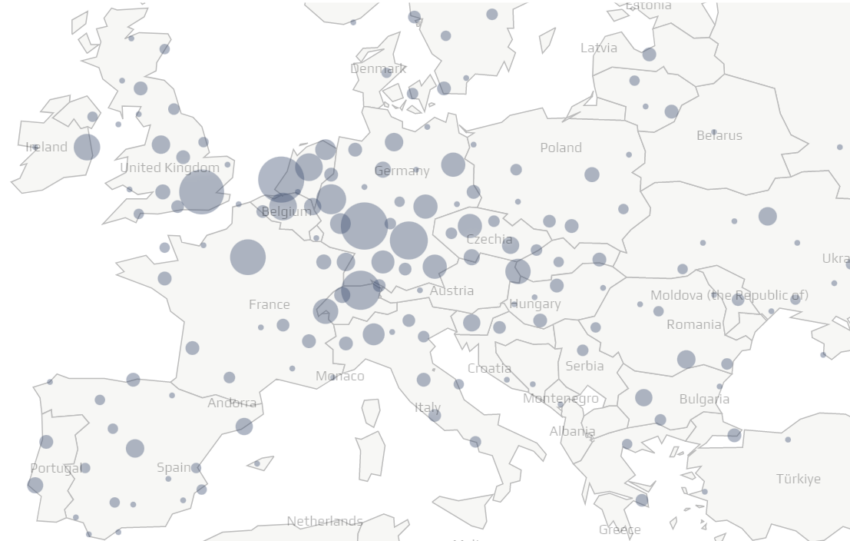There have been two recent cases dealing with the methods that can be used to serve legal claims, showing that the court is willing to adapt its procedures to allow service where necessary, but that there are pitfalls to watch out for.
Provide more than one email address for the service
The first case is Entertainment One UK Ltd & Anor v Sconnect Co Ltd & Ors [2022] EWHC 3295
There were two applications before the Court in this case, which was an application by the claimant for a declaration that service on the defendant of a claim form and particulars of claim made by email on 24 January 2022 was effective and that, if not effective, seek an order for service of the claim form by an alternative method in accordance with CPR 6.15 and 6.27.
The defendants had also sought a declaration that: “the English court has no jurisdiction to try the claims made against each of the defendants” on the grounds that the service was deficient and that “the defendants do not target the UK market”.
The Court considered that a targeted approach was necessary when interpreting practice guideline 6A on electronic service of documents. A serving party’s failure to ask the recipient about limitations on accepting service by electronic means is not necessarily fatal to good service. Likewise, service is not automatically deficient where the defendants’ attorneys specify more than one email address for service. Furthermore, if a bilateral service agreement is in effect but alternative methods of service are permitted, the applicant need only show “good cause”, rather than “exceptional reasons”, for alternative service.
The court therefore ruled that the claim form and claim specifications were validly served on the defendant and that service was carried out on 26 January 2022, and also held that the defendants were targeting the UK market and that England and Wales was the proper forum.
This case is in conflict with the previous case of Tax Returned Ltd & Ors, R (On the Application Of) v Commissioners for His Majesty’s Revenue and Customs [2022] EWHC 2515 which also applied to service by e-mail. Here, in pre-action correspondence, HMRC provided two email addresses for service. The claim form was sent to one of the two e-mail addresses, but not to both, and when assessing whether the claim had been served, the judge considered that 4.1 of the Civil Procedure Rules refers to an “e-mail address” and not e-mail addresses and thus held that the If HMRC had not provided a single email address, service could not be provided by email.
When serving documents electronically, caution is advised, especially when more than 1 email address for service is provided. For example, contact the other side and ask for clarification on which e-mail address should be used for the service, and also ask if there are any restrictions on accepting services by e-mail such as the size of attachments, etc.
The CPR Rules are to be amended in April 2023 to clarify the position of service by e-mail by specifying “e-mail address or e-mail addresses” and also specifically state that where a party provides several e-mail addresses for service, that a document may is served by sending it to two of the e-mail addresses provided. This change will resolve the current uncertainty about the email service where more than one email address is provided.
Service by NFT
The case of Osbourne v Persons Unknown Category A & Ors [2023] EWHC 39 (KB) relating to misappropriation of a non-fungible token (“NFT”). Non-fungible tokens are assets that have been tokenized via a blockchain. They are assigned unique identification codes and metadata that distinguish them from other tokens.
The claimant, Mrs Osbourne, was a resident of England and the claim was brought against unknown hackers. The Court considered in this case whether the claimant could serve the claim form outside the jurisdiction on persons unknown, given that the NFTs, after their embezzlement, will have been transferred through several wallets.
What distinguishes this case from previous cases is that the judge found that there was room to argue that the question of property being in the jurisdiction for the purpose of granting permission to donate outside the jurisdiction must be decided at the time the application is made and not when the cause of action arose.
The judge found that it was strongly argued that a constructive trust alleged to have been created when the NFTs were transferred from the claimant’s wallet was governed by English law, and that persons who subsequently held or controlled the NFTs became constructive trustees under English law when they received these NFTs. Permission to serve outside the jurisdiction could therefore be granted.
This case is believed to be the first case where the court has given permission for a claim form and other documents to be served only by NFT and the court allowed service by this method after being convinced that there was no other available method of service.
This case may assist those who have been victims of crypto-asset fraud to pursue claims against anonymous fraudsters/hackers.
While the Rules of Civil Procedure still refer to service by fax, the court allows service by electronic means, including NFT and social media in appropriate cases. This case shows that when other more common service methods are not possible, the court is willing to adapt to technological developments.

























